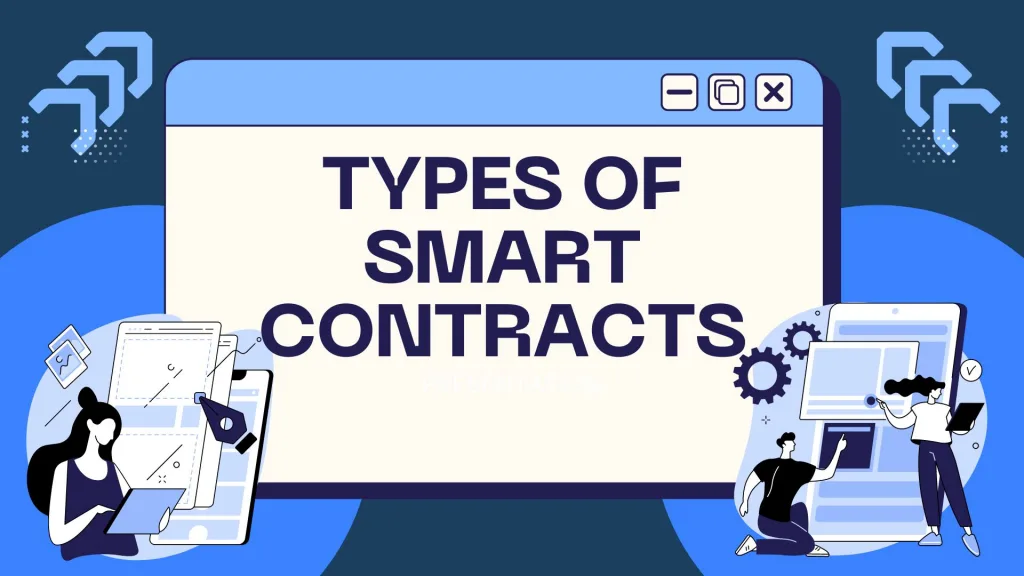Smart Contract & Its Application
Smart contracts underpin the majority of blockchain applications, ranging from non-fungible tokens (NFTs) to decentralized applications and the metaverse
Smart Contract self-executing programs on a blockchain that automatically run when predefined conditions are met. These terms and conditions are encoded directly into the blockchain, ensuring transparency, security, and immutability. By storing the programming code on the blockchain, smart contracts facilitate trustless transactions and operations, reducing the need for intermediaries and enhancing efficiency in various applications.

Advantages And Disadvantages Of Smart Contract
1. Advantages
- Security: Smart contracts employ advanced data encryption techniques, making them highly secure and tamper-proof, which significantly enhances the protection of sensitive information and transactions.
- Speed: The automation of tasks through computer protocols significantly accelerates processes, providing substantial time savings compared to manually executed contracts.
- Cost Savings: Smart contracts reduce costs by eliminating the need for brokers or intermediaries, thereby making transactions more economical.
- Accuracy: The use of smart contracts minimizes the risk of human error, ensuring greater accuracy in the execution of contract terms.
2. Disadvantages
- Difficulty in Modification: Once deployed, altering a smart contract is extremely challenging, as the process is nearly immutable.
Regulatory Uncertainty: The international legal framework currently lacks clear definitions and regulations for “blockchain,” “smart contracts,” and “cryptocurrency,” creating a regulatory gray area.
Application Of Smart Contract (Base on Industry)
- Supply Chain Contracts: Tracking goods, managing payments, and ensuring quality control.
- Financial Contracts: Facilitating lending, borrowing, trading, and insurance processes.
- Healthcare Contracts: Managing patient data, supply chain, and insurance claims.
- Real Estate Contracts: Handling property ownership, rentals, and transactions.
- Identity Management Contracts: Verifying identities and granting access to services.
- Token Contracts: Creating and managing digital assets, such as cryptocurrencies and utility tokens.
Types Of Smart Contract:

Smart Legal Contracts: Smart legal contracts operate with legal guarantees and follow a conditional format: “If this occurs, then this will occur.” Stored on blockchain and immutable, they offer more transparency than traditional contracts. Executed with digital signatures, these contracts can autonomously enforce terms, such as debt repayment on a specified date. Non-compliance can lead to serious legal consequences.
Decentralized Autonomous Organizations (DAOs): DAOs are democratic entities governed by smart contracts, granting voting powers to participants. These blockchain-based organizations operate without executives or presidents. Instead, rules encoded in the contract govern operations and asset distribution. An example is VitaDAO, which leverages technology for a community focused on scientific research.
Application Logic Contracts (ALCs): ALCs consist of application-based code that interacts with other blockchain contracts, facilitating device-to-device interactions such as blockchain integration and the Internet of Things. Unlike other smart contracts, ALCs are signed between computers and other contracts rather than individuals or organizations.






